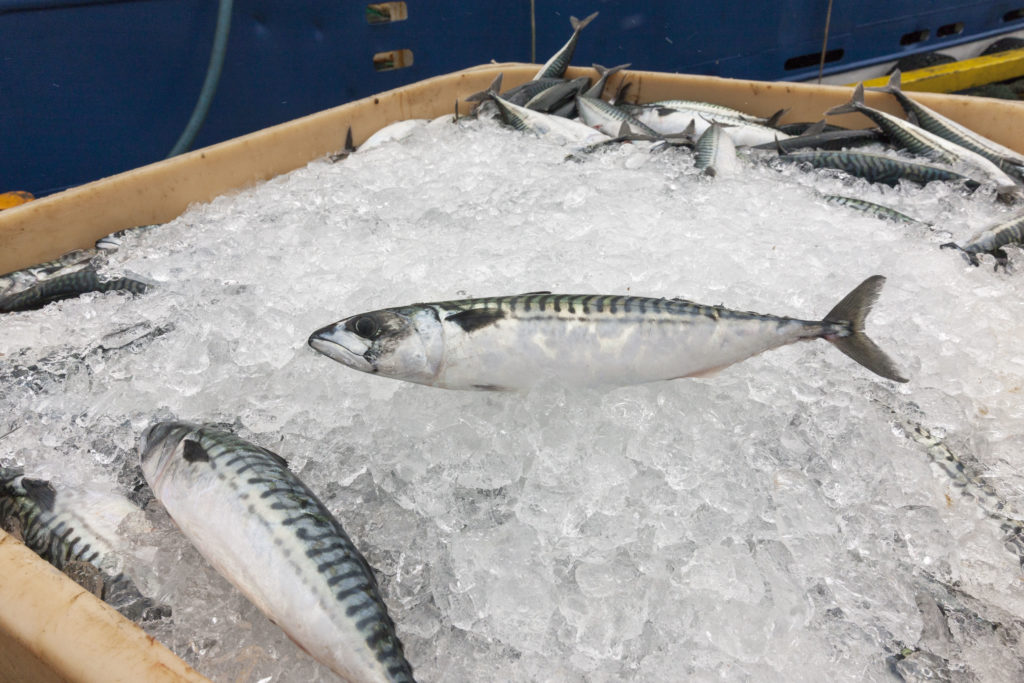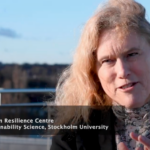Overfishing, fractured international relationships and political conflicts loom as fish migrate more unpredictably because of climate change. This is why we need to redesign the governance of fisheries, says Jessica Spijkers, PhD student from the Stockholm Resilience Centre.

In 2007, Icelanders started fishing mackerel in their own waters. However, this seemingly straightforward decision became the start of the battle over mackerel between Iceland, the EU, Norway and the Faroe Islands. The entrance of Greenland into the fishery further complicated the situation.
Originally, mackerel were found in EU, Norwegian, and Faroe Island waters (and a small portion in the high seas), and fishing quotas were negotiated between these states. However, as ocean temperatures warmed as a result of climate change, mackerel followed these changes to waters that suited them best – towards Iceland and Greenland.
Even though mackerel were found in their own Exclusive Economic Zone (EEZ), the area where the State has special rights with respect to the marine resources as prescribed by the UN, Iceland was not supposed to fish mackerel. This is what caused tension for EU and Norwegian fishers, whom believed that the bulk of mackerel quota belonged to them. However, their reluctance to revisit Iceland’s share of the “total allowable catch” of mackerel fueled Iceland’s discontent with the EU and Norway.
Less predictable fish stocks
Fisheries are no stranger to these types of conflicts and as climate change intensifies, interstate tensions are likely to become more frequent. Existing fisheries management and governance are established on fish stock geographies that remain mostly static through time. We will start to see challenges emerge when fish stock distributions become less predictable across the globe, and we will see more conflict if states fail to prepare international fisheries governance to reshuffled species distributions.
We know the ocean will continue to warm, what is unclear is the extent to which future shifts in species distributions could increase the potential for conflict is not clear. In an article in Science, led by Malin Pinsky from Rutgers University, we highlight how policy must anticipate fish species movement as a way to mitigate conflict over fish resources. In the paper we project the future distributional shifts of important fish species under different climate scenarios, delineating the number of new fish stocks that certain EEZs could receive by 2100.
Straddling stocks, stocks that move within two or more EEZs, or within an EEZ and the high seas, are of particular interest when it comes to fisheries’ governance, as they require international cooperation. Through our analysis, we found that many of the world’s EEZs will receive one to five new transboundary fish stocks by 2100.
Read more about Jessica Spijkers’ findings on the Stockholm Resilience Centre page
In east Asia, where conflict between countries over territory and transboundary stocks is already high, up to ten new transboundary stocks could enter certain EEZs, further increasing the potential for conflict over fishery resources in the region. In the tropics, a region where many people rely on fish as a source of livelihood and food, a decrease in available fishery resources can be expected. This could present grave implications for food security in the region.
Legal framework not up to speed
We need to redesign how we govern fisheries to mitigate potential conflicts, such as those over shifting or transboundary stocks. Our current legal framework for the international regulation of fisheries does not directly account for fluctuating or changing distributions of fish stocks. Straddling stocks could experience even further reach, involving more EEZs, as the water warms.
The United Nations Convention on the Law of the Sea states that these stocks must be managed and regulated for conservation, and regional fisheries management organizations help with single-species straddling stocks. Yet, they are limited in their abilities to anticipate future changes.
Anticipating changes in fish stocks, and having the policy tools adapted to this new reality, is what will help us navigate collaboration between states, and maintain peace and security in the seas.







